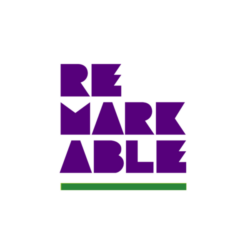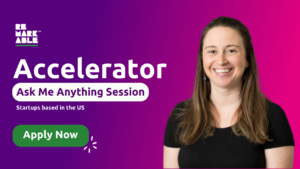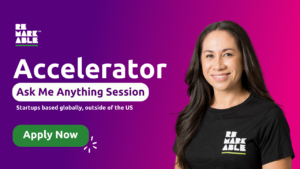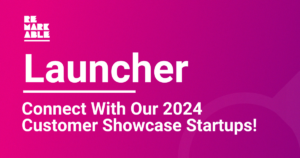Transcript
[00:00] Viv: Kelly, “Hi”, can we please start with a visual description of yourself. I am also curious to know what you think about visual descriptions.
[00:17] Kelly: For me personally, who has lifelong blindness, it doesn’t make a whole lot of difference to me. It doesn’t change my judgment of people unless it’s something entertaining, unless they’re describing somewhere where they are that might be exotic or different or the language they choose to use. When it’s deliberate like that and is a really interesting description, then I’m interested in it. But I don’t need it to fundamentally feel connected to a person or to make a visual image of that. I don’t think when I listen to people, I have a visual image of that, of them when they’re speaking. I also feel uncomfortable for people who then have been blindsided by the request to actually give a description, because it often puts people off. It’s like, ‘ oh I wasn’t expecting to do that. Hang on, I hadn’t thought about it’. And it feels really awkward to them and it feels like a poor way to start a conversation or a presentation then. And so I feel a bit bad for them that they’ve all of a sudden someone’s told them to be inclusive, they have to do this bit. So I think if people are prepared for it and have something interesting to say, then great. But otherwise for me it’s not a big issue.
[02:12] Viv: Yeah, so it almost serves more of an icebreaker?
[02:16] Kelly: I think so. I think it can be an interesting icebreaker, particularly if people are prepared for it.
[02:20] Viv: Thanks for sharing. Kelly, I would love you to introduce yourself. Where are you based right now? What do you do and what is your favorite colour?
[02:29] Kelly: Hello. I am in Melbourne today on Wurundjeri country. There is actually a dispute over which country I’m on, but we go with Wurundjeri for the most of the time, and it is supposed to be 21 degrees and the sun’s shining out there at the moment. My favorite colour is shiny. So anything shiny catches the light. Bright lights. Bright colors. Shiny is definitely my favorite colour and I always say I’m here for my own entertainment because I’m curious about almost everything. I never grew up from asking ‘why’, I just like to know stuff about everything doesn’t necessarily mean I retain that information, so I’m not a walking encyclopedia and don’t take me to pub trivia because I’m useless. But I just like to know why about things. I’m always curious about things and why do we do it that way? And so the worst thing you can say to me is because that’s the way we’ve always done it. Yeah, that’s me.
[03:34] Viv: I think that’s a great sort of segue to chatting about your podcast. I’ve been listening and it’s so cool the mission that you’re on, but I know it comes from, was inspired by a quote, and I’d love you to share that quote and what it means to you.
[03:49] Kelly: So ‘Knowable.me’ is my podcast. Thanks for the plug. And it was inspired by Maya Angelou’s quote, which is, ‘Do what you know, until you know better, then when you know better, do better’. And I think the know-better, do-better is part of that curiosity. It’s part of wanting to know more, so that we can be better at doing things, and there’s always something better we could be doing. Always that next step, always moving forward. Our vision is a world where human uniqueness isn’t a barrier to economic and social participation. And I call it human uniqueness because yes, we’re all unique humans and to coin a phrase, some are more unique than others, but it’s about celebrating that everyday things and everyday experiences are different for everybody. So something that you might not think of as you go about your day is something that, for someone else, could be a really high effort, high anxiety, high stress or highly complex situation. My first episode was about lifts. Lifts have been one of my favorite topics for a very long time because lifts are fundamentally an accessibility tool designed to help people get from one floor to another without taking the stairs. So it’s now a convenience rather than an accessibility tool, but for something that’s fundamental to accessibility, they’re just not accessible. They haven’t been designed with accessibility in mind or unique humans for that matter, and it seems to be the further we get on in technology, the more downhill they go.
[05:33] Viv: You used to work in more of a corporate role. You have also shared experience about a lift that got upgraded in the office you were working.
[05:41] Kelly: So it wasn’t the lift upgrade that made me pivot my job, but the lift upgrade was certainly annoying. The short version is that lift upgrade went from lifts that you’d go to the right set of lifts, get in a lift, physical button, tactile button, braille on the button, press that button and reliably get out at the right place. To a system that had a touchscreen, you could select your floor. It would tell you specifically which lift to go to. Hopefully you made it to that lift, and then it would go up to the right floor. The problem being that touchscreen was not fundamentally accessible, so they had put in an accessibility button and then it would start talking to you and it would say, ‘press this button the number of times for the floor you want’. In my case, I worked on the 39th floor. At that point in time, that button had to be pressed 39 times, hopefully you didn’t miss it because it would scroll through all the floors before that and 39 button presses. I like pressing the pedestrian button multiple times, I’m one of those people, but I don’t think it ever gets to 39. That’s a lot of buttons to push that experience. Once again though, fundamentally accessible is it reasonable? Is it right? Is it usable? Is it equitable? I don’t really think so. I decided that there’s something more, there’s data missing from that equation and data that indicates that you need to be thinking about your most interesting users because they’re the ones that are gonna bring you the innovation. I think there’s a lot of talk at the moment about closed captions and the fact that 80% of people 18 to 24 are using captions 80% of the time. 80% most or all of the time, I think was the stat from the BBC. So that tells me something that was an innovation for deaf people and hard of hearing has begun something that an overwhelming majority of the population wants. So if you were building a streaming service today, you wouldn’t build that service without putting captioning in because you’d lose your key demographics. So that’s an innovation that belongs now to everybody, and there are lots and lots of examples in accessibility and the disability community of people who’ve come up with those innovations that everybody’s using every day. And so to me it’s not about the question of how many people are there who might actually wanna use that? It could be everybody. If we start gathering data about the needs and preferences of people with disabilities, we’ll start being able to design from disability, not for disability.
[08:31] Viv: I think that’s season two of ‘Remarkable Insights’ done! What are your thoughts on the accessibility of a lot of the storytelling and the messaging out there about technology and innovation?
[08:45] Kelly: In a real practical sense I’m hoping that audio descriptions are the captions of the future, so everyone is gonna figure out how good it is to have captions. Because when you’re watching a Mafia movie and everyone’s wearing a black suit and a black tie, and you actually think they all look the same, and you’ve got no idea who’s who, that the audio description’s actually telling you who’s who, and you don’t have to think about it anymore. So audio descriptions are amazing, and I’ll tell you watch your first sex scene with audio descriptions, and you’ll never go back! So audio descriptions are the new captions, and I’d like to think that in storytelling we can get better at that and that audio descriptions are seen as enhancing the experience, not just as an accessibility overlay, almost in the way that captions have gotten to. So that’s one improvement that stories really need to have.
[09:36] Viv: And I know in your previous role, I believe you really pushed for audio description.
[09:41] Kelly: Audio descriptions can and should be anywhere and everywhere because they are about enhancing the experience. I think creators need to get more creative. I can’t stand the TikTok voice just quietly. And anytime I start to hear that woman, ‘I’d go, oh, I don’t wanna watch this one’. And you can also be really entertaining with those descriptions. So if your ad is only music, it could be the most banging track. But if you’re not telling me what you’re advertising, completely wasted that spend, and that could have cost you five grand in prime time or more, you’ve wasted it on me.
[10:23] Viv: What is the assistive technology in your day-to-day life that people perhaps wouldn’t know would technically be assistive technology for everyone?
[10:31] Kelly: I used to cheat answering this question and say that my guide dog is the best piece of technology I’ve got. But there is a short description as to why, and it’s that she is completely flexible to my needs. She’s reliable. She’s cute. That helps. Totally relatable. She breaks down social barriers for me. She has all these, what I call human characteristics of what we think of being human, and that’s what I want from my technology. I don’t want my technology alienating me. I want it to facilitate communication, to facilitate independence, to facilitate human and social and economic participation and that’s what my guide dog does. And I say that because so often there’s lots of news articles out there about the guide dog of the future, and sure they don’t poo and they probably don’t vomit, but I also don’t necessarily wanna be the person that looks like they’re walking a Dyson down the street, because that’s not gonna facilitate my social participation. It’s not gonna cuddle up to me at night and make me feel better when I need it. I just think technology needs to facilitate all those human needs. It should be working for us, I shouldn’t have to adapt to it.
[11:55] Viv: And what, if you don’t mind me asking, what is your relationship with technology?
[11:59] Kelly: I think deep down I really love it. And that’s a generalisation because most of the time technology is totally enabling, but there are times where it doesn’t work because it hasn’t been designed in a thoughtful, accessible way.
[12:18] Viv: And what do you hope the future, we hear a lot of things about AI and there is technology that doesn’t exist, I mean it exists, but it’s really at this sort of birthplace where it’s getting traction and these new things are being introduced. How do you hope that can leverage off what you’re doing with Knowable Me?
[12:38] Kelly: We always often jump to the nefarious use of technology and why it’s gonna be bad. I think we need to focus on the positives and mitigate the risks. So the idea that AI is gonna help every kid cheat at school is not what I’d be talking about. I’d be talking about the fact that AI can help neurodivergent kids communicate their own thoughts and ideas better by putting that into some order of communication to help them communicate. That’s the story we should be talking about. And mitigate the risks. Go ‘actually kids, you can use the AI, but let’s understand it as a tool. Let’s understand its limitations. Let’s learn our critical thinking and how to ask a good question’. Because they’re the skills that kids are gonna need. AI is not going anywhere, so let’s embrace it and embrace it for the positives and mitigate the risks.
[13:34] Viv: We do like to end the episode with asking a guest to share a remarkable insight, to share something you’d like to lead the guest with or listeners.
[13:42] Kelly: What I have talked about is finding your most interesting users. I understand that’s hard to find people who might be doing things in an interesting way, but I think having curiosity to try and learn from people who do things differently and do experience the world differently for whatever reason, is a really important part of being an innovator and an important part of being remarkable is to find those things that no one else is looking at, to shine a light on those experiences and to really learn from them. I also like to say that inclusion is like cheese. You can never have too much, but some is always better than none.
Check out Kelly’s podcast Knowable.Me and follow her on LinkedIn and Instagram. For more updates on what is happening with Remarkable follow our socials!






